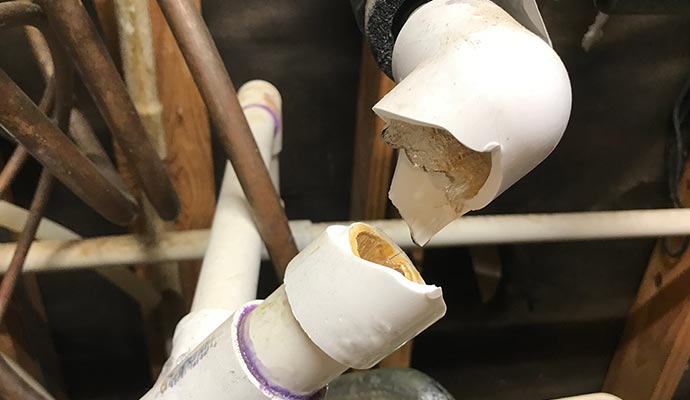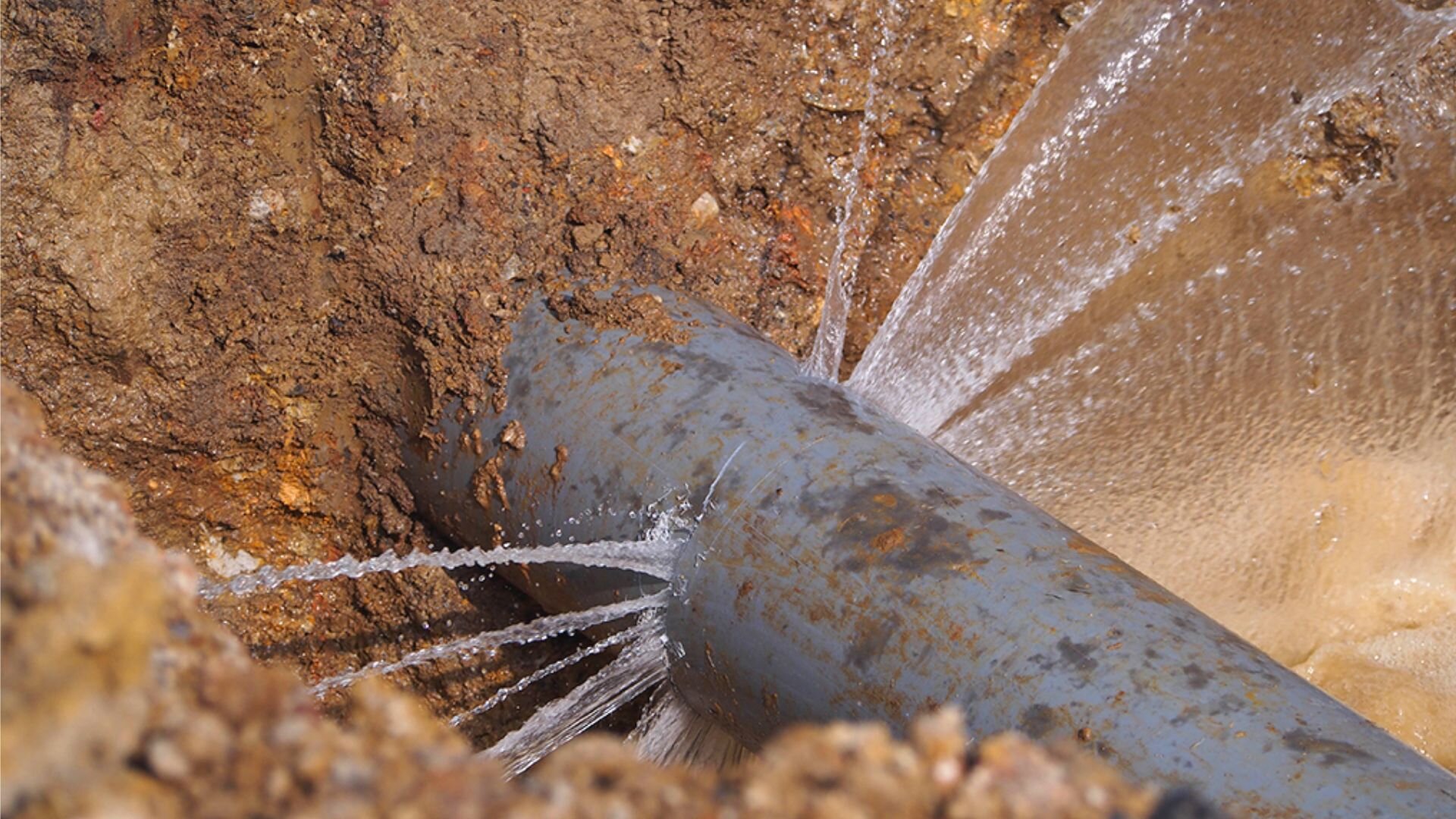What to Do When a Burst Pipe Causes Water Damage in Your Home
What to Do When a Burst Pipe Causes Water Damage in Your Home
Blog Article
Avoiding Ruptured Water Lines: Important Tips to Secure Your Plumbing
Preventing ruptured pipes is an essential problem for homeowners, specifically during colder months when the threat of cold is heightened. Carrying out tactical actions such as correct insulation, regular examinations, and keeping constant indoor temperatures can considerably minimize the probability of pipe failure.
Understand Pipe Vulnerabilities
Recognizing pipe susceptabilities is essential for efficient pipes maintenance and preventing expensive damages. A number of elements add to the sensitivity of pipes to ruptureds, including product composition, age, and ecological conditions. Older pipes, particularly those made from galvanized steel or polybutylene, commonly deteriorate in time, leading to boosted risk of leakages and tears.
Temperature level changes can also significantly effect pipeline stability. In chillier climates, water caught in pipes can ice up, exerting and increasing stress on the pipe wall surfaces, which might eventually result in a ruptured. High water pressure can strain pipes, particularly at joints and bends, enhancing the likelihood of failing.

Insulate Water Lines Effectively
Correct insulation of pipes is critical for avoiding cold and subsequent bursts during winter (burst pipe). Protecting your pipes system efficiently safeguards against temperature level drops that can result in expensive damages. Begin by recognizing prone locations where pipelines are revealed to outdoor temperature levels, such as basements, attic rooms, and outside wall surfaces
Use foam pipe insulation sleeves or cover insulation tape around these locations to give a safety barrier. Ensure that all sections of the pipelines, especially those with limited heat exposure, obtain adequate insulation. Pay special attention to joints and fittings, as these are a lot more at risk to freezing.
When shielding, it's important to choose materials that meet regional building regulations and are proper for the specific atmosphere. For instance, fiberglass insulation is often recommended for its thermal resistance buildings - burst pipe. Additionally, take into consideration using heat cable televisions or tape in severe conditions, which can be connected in to supply supplementary warm
On a regular basis inspect insulated pipelines for any indicators of wear or damages, as endangered insulation can reduce its performance. By taking these aggressive measures, you dramatically lower the danger of pipeline ruptureds, guaranteeing a trusted pipes system throughout the winter season months.
Maintain Regular Temperature
A steady indoor temperature is important for protecting against ruptured pipes during the icy months. When temperature levels decrease, water within pipelines can ice up, creating and broadening pressure that might inevitably trigger the pipelines to ruptured. To minimize this danger, property owners ought to preserve a constant temperature throughout their space, preferably no less than 55 ° F(13 ° C)Making look at this now use of a programmable thermostat can help take care of indoor temperature levels successfully, ensuring that spaces with plumbing stay cozy even when the home is vacant. Pay unique focus to areas that are extra vulnerable to chilly, such as basements, attic rooms, and garages. Keeping cabinet doors open under sinks can additionally permit warmer air from the home to flow around plumbing.
Furthermore, it is sensible to permit taps to trickle a little throughout extreme cold spells. This small flow of water can protect against cold by alleviating stress within the pipes. Additionally, during specifically severe weather events, consider briefly suspending any kind of nighttime troubles on your thermostat to preserve a stable warm setting. By executing these strategies, homeowners can considerably decrease the risk of pipe ruptureds and safeguard their plumbing systems versus the severe winter season components.
Regularly Check Pipes
Normal inspections of pipes systems are important for preventing ruptured pipes and maintaining overall home integrity. Routine checks permit house owners to recognize possible concerns before they intensify into expensive repair services or major water damage. Throughout these assessments, it is vital to take a look at visible pipelines for indications of corrosion, leaks, or wear. Pay unique focus to areas prone to freezing, such as cellars, attics, and exterior wall surfaces. visit the site
In addition, evaluating connections and joints is crucial, as these points are often vulnerable to leaks. Homeowners ought to likewise evaluate water pressure levels, as extreme pressure can strain the plumbing system and enhance the threat of pipeline ruptureds.
Consider scheduling expert plumbing evaluations at least as soon as a year, specifically prior to wintertime, to guarantee your system is prepared for chillier temperature levels. By being proactive in your approach, you can protect your home versus the turbulent and expensive repercussions of burst pipes.
Know Emergency Treatments
Recognizing emergency situation procedures is essential for every house owner, specifically after conducting regular plumbing examinations. Being prepared for a pipes emergency can significantly alleviate damage and save prices.
Next, keep important tools useful. A plumbing emergency kit must consist of a wrench, bettor, and towels, along with a flashlight and a bucket for little leaks. In addition, take into consideration having the contact details for a relied on plumbing professional conveniently available, needs to the scenario intensify past your control.
If you spot a leakage or ruptured pipeline, promptly shut off the water system and inform your plumbing. Moreover, document the damage with photographs for insurance functions. burst pipe. Recognize the indications of potential pipes concerns, such as unusual water pressure fluctuations or damp spots on walls
Ultimately, positive knowledge and swift action are essential in managing pipes emergency situations, guaranteeing your home remains secured and lessening possible damages.

Conclusion
To conclude, protecting against burst pipes necessitates a diverse approach that consists of understanding pipe vulnerabilities, correct insulation, preserving regular indoor temperatures, normal evaluations, and knowledge of emergency procedures. By applying these important techniques, the danger of pipes failures can be dramatically my site lowered, consequently guaranteeing the long life and efficiency of the pipes system. Positive measures not just protect versus prospective damage but likewise add to overall water conservation and the security of building.
In chillier climates, water trapped in pipelines can freeze, expanding and applying pressure on the pipe wall surfaces, which might inevitably lead to a burst. When temperatures decline, water within pipelines can freeze, developing and broadening stress that may inevitably cause the pipelines to ruptured. By applying these techniques, home owners can substantially lower the risk of pipe bursts and secure their pipes systems against the severe winter months aspects.

Report this page